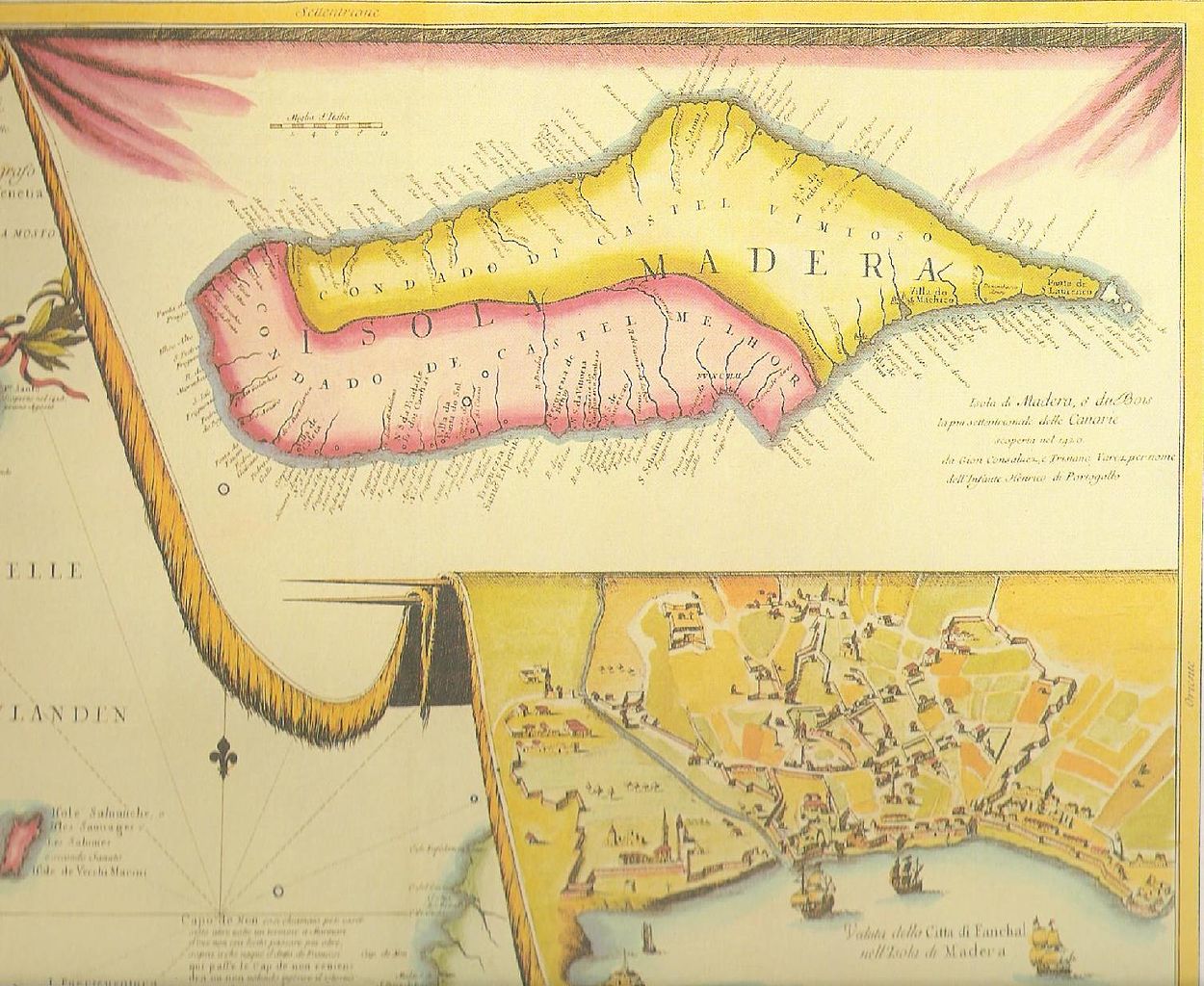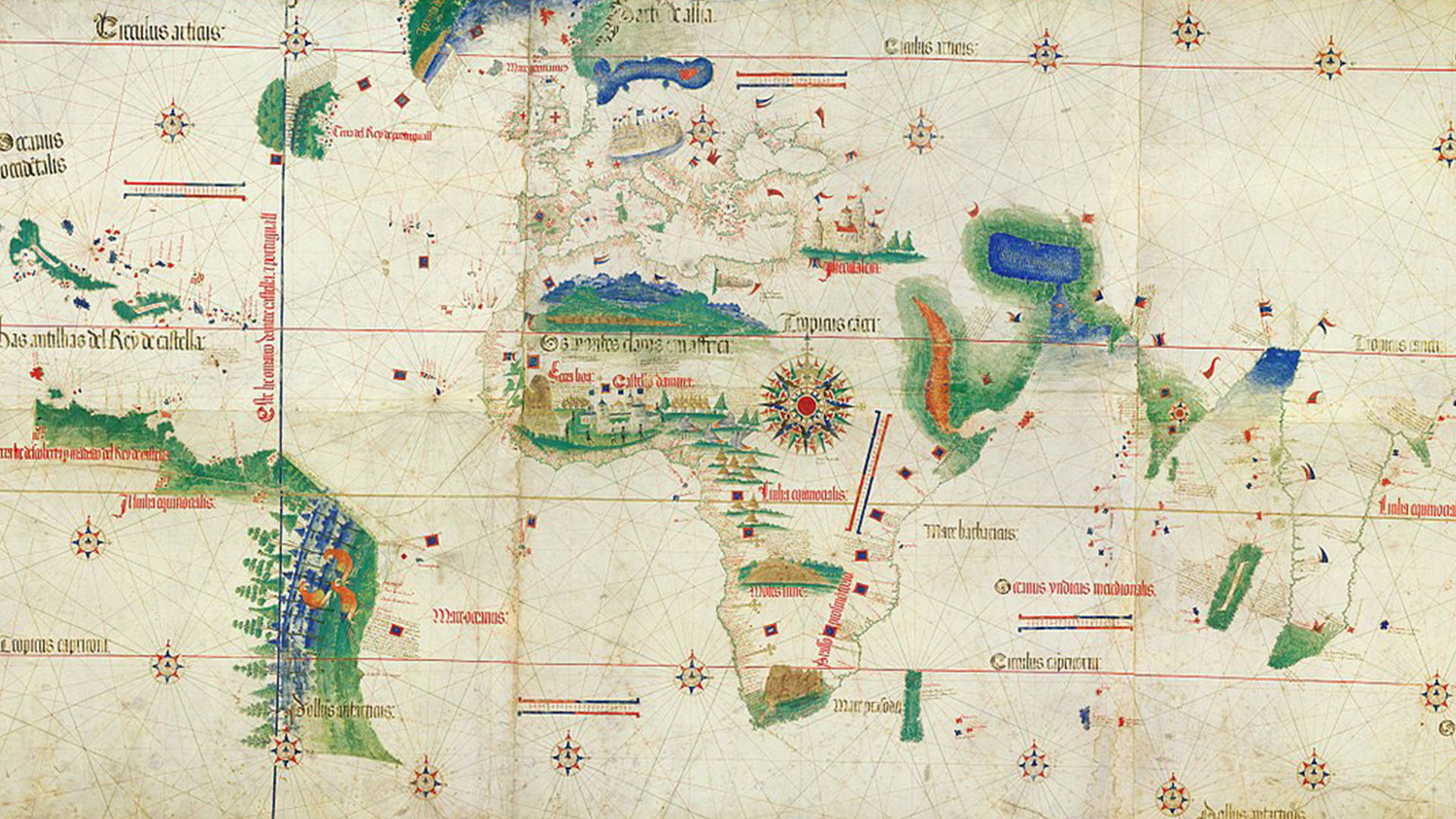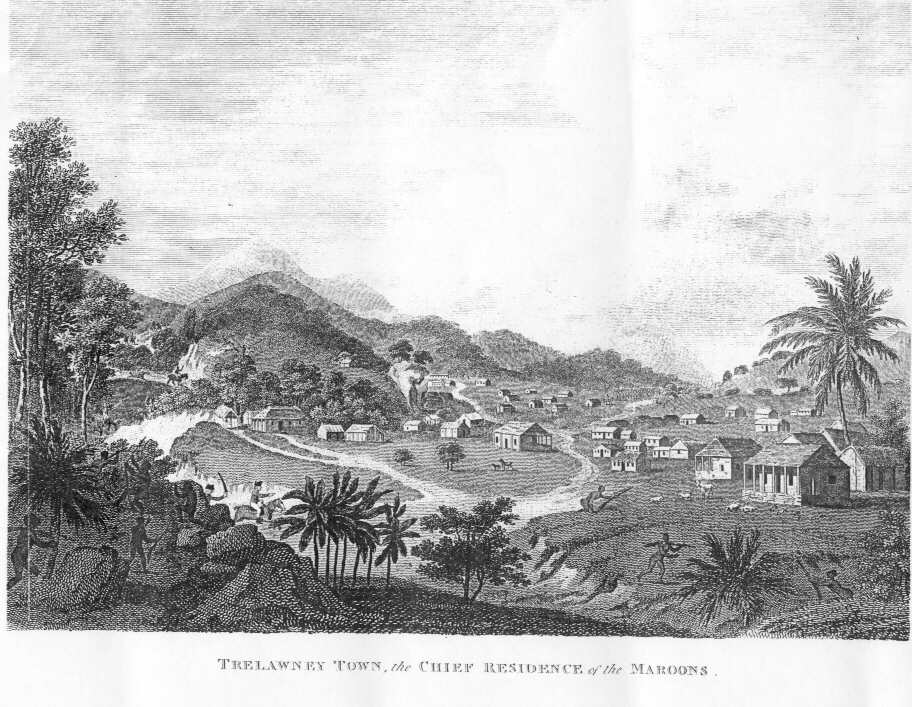Why we need a decolonial ecology
An interview with Malcom Ferdinand
Environmental destruction and social oppression have always gone hand in hand. Colonialism and slavery are deeply connected to the ongoing ecological crisis, so to address it, Europe’s whitewashed past must be recast and the demands of the colonized taken seriously.
Malcom Ferdinand: I am by no means the first to point out the link between social inequality and environmental destructions: that’s what social ecology, political ecology, and ecofeminism all are about. But what I’m interested in is tying these questions to the legacy of racism and colonisation, which remains little explored (except by environmental justice movements).
Environmental destruction and social oppression have always gone hand in hand. However, as we are urged to tackle the climate emergency, we continue to see slogans devoid of social thought. This allows others to co-opt the environmental imperative and advocate a technocratic response, such as combatting pollution and resource scarcity through geo-engineering or carbon markets.
Aurore Chaillou and Louise Roblin: You trace the origins of the environmental crisis back to the 15th century and the age of colonization.
Malcom Ferdinand: We have seen several accelerations in environmental destruction, particularly in the 19th and 20th centuries, but the ecological crisis began before these. It comes from a certain way of inhabiting the earth, from some believing themselves entitled to appropriate the earth for the benefit of a few. Starting in the Caribbean, this ‘colonial habitation’ dates back to the end of the 15th century, when Christopher Columbus arrived in America (even though the plantation model dates back even earlier, for example, in Madeira).

Madeira Island Ancient Map. Photo by F. de Wit from Wikimedia Commons.
The Caribbean occupies an important place in modernity, because the violent meeting of Europeans with Amerindians coincided with the ‘enclosing’ of the earth. We could now measure the resources available on the planet. For many scholars, this moment marked the beginning of globalisation.
Aurore Chaillou and Louise Roblin: You contrast the Anthropocene with the Negrocene, based on ‘colonial habitation’. Is this different from capitalist exploitation?
Malcom Ferdinand: The people exploited during colonisation weren’t just anybody: although French peasants were also victims of social violence, they could always consider themselves superior to Blacks. The question of racism is almost entirely absent from French political ecology. On this point, I disagree with certain eco-Marxists for whom capitalism explains everything or who claim that social inequality and structural racism are one and the same. While colonization and slavery were also driven by capitalist rationales, these processes were above all based on a colonial worldview that invented a hierarchy between races and different lands of the globe.
In the colonial era, the lands of the Americas were subordinated to the lands of Europe. They were seen as a means of keeping shareholders happy, and this legitimized any practice. Even measures to protect the fertility of the land were ultimately aimed at maintaining its exploitation. These lands were thought of as different from those of France. It was a violent and misogynistic process, an awful way to inhabit the earth promoted by the colonizer for whom other human beings were dehumanized and for whom colonised lands and the non-humans that inhabited them mattered less than his desires. This is what I call ‘colonial habitation’. Colonial habitation is a violent way of inhabiting the earth, subjugating lands, humans, and non-humans to the desires of the colonizer.
A host of justifying narratives and practices – drawing on religion, metaphysics, law, culture, and so on – are then created. In 1848, for example, the second abolition of slavery in France and its colonies was undoubtedly a major political and legal milestone. Yet various fictions were used to keep former slaves on plantations and limit the development of the peasantry. Landowners, who had to grow monocultures on their land under the colonial model, perpetuated a colonial habitat after 1848: the mentality of appropriation and hierarchy remained unchanged.

‘Enclosing the Earth’. The Cantino planisphere, completed by an unknown Portuguese cartographer in 1502, is one of the most precious cartographic documents of all times. It depicts the world, as it became known to the Europeans after the great exploration voyages at the end of the fifteenth and beginning of the sixteenth century to the Americas, Africa and India. It is now kept in the Biblioteca Universitaria Estense, Modena, Italy. Photo by F. de Wit from Wikimedia Commons.
This way of inhabiting, now conceivable without slavery, spread its practices to other places. Banana growing, silk farming, and mining grew across the French Empire. Regarding the case of the infamous chlordecone pollution in the French islands of Martinique and Guadeloupe, in just 20 years these practices contaminated lands for centuries and poisoned thousands of people to fill the coffers of a few.
My work has shown that we can get caught in a technocratic reading of environmental problems. A chemical is toxic? We take it off the market. Too much pollution? We regulate, or implement a technical solution. But subalterns don’t just want to be decontaminated or even want justice for a crime of this magnitude. Rather, five centuries later, with still no indictment made, it’s about changing the way lands are inhabited.
Aurore Chaillou and Louise Roblin: When you talk about ‘subalterns’, whom do you mean? Oppressed people in general, the working class, women, sexual minorities?
Malcom Ferdinand: I use the word ‘negro’ fairly freely (in Negrocene, for example). Subalterns are today’s ‘plantation’ negroes, regardless of their gender or skin colour. We’ve essentialized the negro as black: it comes from Spanish, in which the two words are the same. But Blacks are not the only ones who have suffered and who still suffer on plantations. This word was first de-essentialized by writers. A ‘negro’ is a being who does the work of someone else without being recognized for it.
The Negrocene draws attention to all those beings whose life force was used to satisfy the selfish desires of others. The history of Black enslavement has long been ignored in France; it is still mainly thought of in terms of social or gender relations. But we overlook how it is connected to environmental history. We need to link the exploitation of bodies to that of lands. If we start from the unmodern principle that there are continuities between bodies and ecosystems, we realize that to harm one is to harm the other. This prism helps us to understand anti-slavery revolts also as resistance to this colonial habitation. Marronage – the escape of slaves from plantations – is central to my work because it’s another way of inhabiting. Maroons do more than resist slavery: they adopt a different relationship with the earth and non-humans.

Trelawney Town, the Chief Residence of the Maroons, Jamaica c1795. From The History, Civil and Commercial, of the British Colonies in the West Indies by Bryan Edwards, vol. 1 (1801). Photo from Wikimedia Commons / Public domain.
Aurore Chaillou and Louise Roblin: What are the consequences of this ‘colonial silence’ today?
Malcom Ferdinand: I see two problems. On the one hand, it wasn’t until the 150th anniversary of the abolition of slavery that we started thinking about acknowledging what happened. Slavery is a touchy subject in France. When I give racism and slavery awareness sessions in schools, some teachers don’t want me to talk about Blacks. Presidential candidate François Fillon perfectly illustrated this mentality in 2017 when, on the subject of colonial history, he said that France should ‘not feel guilty for having wanted to share its culture with the peoples of Africa’. On the other hand, environmentalism is constructed differently to racism. It’s also true that environmental activists are mostly white (as they admit).
I would say, then, that colonial silence contributes to the ‘double divide’ that separates environmental and colonial thinking and excludes a whole swath of people who inhabit the earth. Yet people who have been colonized can also contribute to environmentalist thinking. By perpetuating the belief that racialized people are not interested in the environment, we maintain the exclusion of racialized people and the way they conceptualize normal spheres and arenas for thinking about environmentalism. This exclusion, in turn, breeds distrust among the racialized. From its very beginning, the imaginary built around environmentalism has erased the roles and words of others.
What’s more, the colonial divide means environmental issues are downplayed. In my book, Une écologie décoloniale (A Decolonial Ecology), I attempt to bridge the divide between environmentalism and decolonization because it harms both. Contrary to collapsology narratives, I try to show that, since 1492, there have already been collapses, and many communities have already proposed alternative relationships with the world. Their voice has not been heard, at least in the environmentalist movement. Yet, by continuing to publish anthologies of environmentalist texts in which not a single Black author appears, a myth is perpetuated that of environmentalism only being driven by Whites from the Global North, the myth that environmentalist thinking among peoples who were once colonized and enslaved is absent.
Aurore Chaillou and Louise Roblin: How should we think about social justice, the fight against racism, and the preservation of ecosystems together? Would redefining the concept of nature allow this link to be made?
Malcom Ferdinand: Eurocentrism and Western-centrism have prevented us from seeing other worldviews. And, if we do reference them, it’s romantically: ‘Oh! If only we could all live like the Guarani!’ Yet we can’t celebrate their way of life without recognizing their history and their social and political marginalization. Among indigenous peoples, suicide rates are often 10 times higher than average.
So, we should let their worldviews challenge us, without forgetting the history of these peoples and what they are asking for. What are the terms that these people use to assert their relationship with the world? That’s how we will bridge environmental justice’s double divide. Talking about ecocide, for example, creates an intergenerational fabric (we connect our actions to the lives of our children, we take responsibility for our legacy, we negotiate that of our parents), but this fabric is thought about in environmentalist terms, rather than social and political ones. Yet understanding that destruction was possible thanks to the exploitation of indigenous peoples means recognizing these peoples’ need for justice, as well as demands for slavery reparations.
Aurore Chaillou and Louise Roblin: Today’s political and economic decision-makers have every interest in continuing to conceal this colonial dimension…
Malcom Ferdinand: We urgently need to make environmentalism about the world: what world do we want to live in? We must recognize culture and colour, rather than simply addressing the issue through technical environmental management. This is what I mean when I talk about ‘decolonial ecology’.
Aurore Chaillou and Louise Roblin: This change in paradigm looks very much like a change in the imaginary. Your book is written in an almost literary style.
Malcom Ferdinand: If I’ve taken literary licence, it’s to make things felt, and not just demonstrate them. Historians, when they claim to be scientific, give numbers. But once we have the facts, we are not necessarily ready to think about and feel what has happened. Putting names to numbers, retracing journeys, that’s what lets us make slavery a story about the world and the earth.
‘Touching the world’ requires values like love and justice. If we ask how we can build a world after colonisation and slavery, the answer is not for everyone to stay away from one another. In my book, I present on the one side figures who flee their homelands (because of the violence done onto them), and on the other side figures who deny the world to the other. But I also talk about those who decide to stay on board the ship shared with all beings. We’re all in the same boat after all.
But among environmentalists, this image is haunted by the story of Noah’s Ark. Michel Serres, for example, uses paintings and images of Noah’s Ark to put forward a political theory of the environment: ‘We are all Noah.’ It’s a foundation myth for a society that allows a theorization of the relationship with the world. But Noah’s Ark talks about a selection process which I consider violent. Furthermore, it focuses on the boarding process: we know nothing of what happens onboard. The way it is used politically seems problematic.
I prefer to use the slave ship, an imaginary shared by many afro-descendants in the Americas, because while we are all in the same boat, we are not all in the same conditions. Historically, the question of who would have been saved among the Black populations of the Americas is painful: we know very well who would have been saved and who would have been abandoned. You need look no further than the Mediterranean to understand this. Even today, the climate storm could become an excuse for not living with others and for building walls.
That said, you cannot build a world on either an ark or a slave ship. I propose imagining a world-ship, populated with humans and non-humans, by taking into account the history of each and every one. On this boat, there is nobody in the hold. Everyone lives on deck.
Published 22 June 2020
Original in French
First published by Revue Projet (in French) no. 375, April-Mai 2020, Green European Journal (in English) 4 June 2020
Contributed by Revue Projet (in French) / Green European Journal (in English) © Malcolm Ferdinand / Aurore Chaillou / Louise Roblin / Revue Projet / Green European Journal / Eurozine
PDF/PRINTPublished in
In collaboration with
In focal points
Newsletter
Subscribe to know what’s worth thinking about.
Related Articles

Giorgia Meloni could become Italy’s first female prime minister. Her political rise is no isolated case: ‘femonationalism’ is flourishing throughout Europe, disguising extremes as the next socially acceptable, mainstream choice.

With the first round of French elections fast approaching, opinion polls suggest a close contest at the top. So how has Le Pen managed to overcome the impact of new far-right contender Zemmour? And what might this mean for Macron’s centrist politics and the future of the Left, including the Greens?






